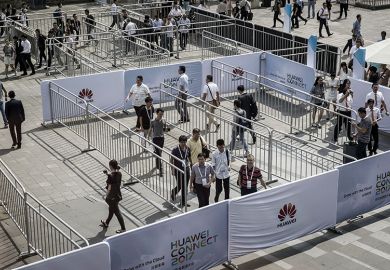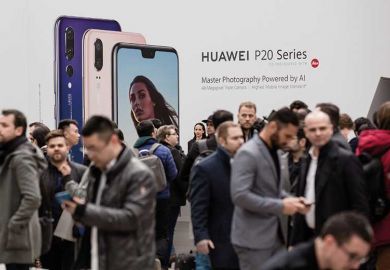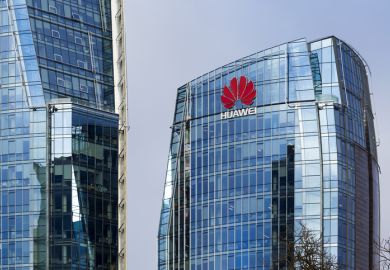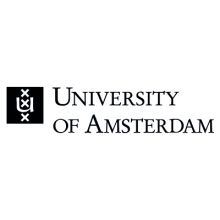Two Amsterdam universities’ decision to launch an artificial intelligence research partnership with Huawei has been described as an important test case of the risks and benefits of collaborating with the controversial technology giant.
The four-year deal, which was signed in May and revealed by Dutch newspaper Financieele Dagblad, comprises a €3.5 million (£3.2 million) payment from Huawei to the University of Amsterdam and Vrije Universiteit Amsterdam, which will fund the hiring of nine researchers to develop “next generation search technology”. Huawei has been banned from using Google on its mobile phones.
Several leading universities around the world have cut ties with Huawei, citing government warnings that working with the company could jeopardise national security. The Dutch deal was signed despite the country’s government reportedly warning universities that working with Chinese partners could result in an “unwanted exchange of knowledge”.
Frank van Harmelen, professor of artificial intelligence at VU Amsterdam and co-director of the new lab, said that academics working on AI technology must work with industry partners who have “real data, real users, [and] real test scenarios so we can confront the new algorithms we design with reality”.
He added that a lot of discussions about Huawei related to its 5G technology but his research project was on “a very different subject” and would work with the “consumer-oriented side of Huawei”. Therefore “a lot of the concerns about national security simply don’t apply”, he insisted.
Professor van Harmelen said that the deal nevertheless included three measures to “safeguard” against any potential risks. These include the researchers having complete academic independence and freedom to publish research results, whether they are positive or negative; all lab staff being employed by the universities and therefore being subject to the Netherlands’ Code of Conduct for Scientific Practice; and all data involved in the project being stored on university machines and servers, which are not accessible to Huawei staff.
Professor van Harmelen added that he discussed the deal with the Dutch ministry of education and security services, not to ask permission but to get their feedback. They were “very keen to make sure we were aware of the risks” but were “happy with the measures that we took”, he said.
“The idea that no one collaborates with Huawei and now Amsterdam shows the way is not the right picture. There are lots of these collaborations and many universities see that working with the Chinese – both academic Chinese partners and industrial Chinese partners – is a necessity in the modern world,” he said.
Marijk van der Wende, distinguished professor of higher education at Utrecht University, who is leading a major international project on China’s impact on global higher education, said that the universities and scholars involved in the project seemed to be “well aware” that “the guiding principles of institutional autonomy and academic freedom come with social responsibility”.
“Potentially, there is a lot we can learn from this project, provided that, as has been stated by the Dutch partners, data security and research integrity are ensured and all research findings can be published openly,” she said.
“Transparency and sharing of experiences in such collaboration will allow us all to learn more about the related risks and the benefits, which may help develop clearer guidelines [for such collaborations].”
Professor van der Wende added that the focus of the project was “fascinating but complex”. While AI can help develop search technologies to be more interactive and culturally sensitive, such knowledge “could perhaps also be used for other non-civic purposes”, she said.
Register to continue
Why register?
- Registration is free and only takes a moment
- Once registered, you can read 3 articles a month
- Sign up for our newsletter
Subscribe
Or subscribe for unlimited access to:
- Unlimited access to news, views, insights & reviews
- Digital editions
- Digital access to THE’s university and college rankings analysis
Already registered or a current subscriber?










